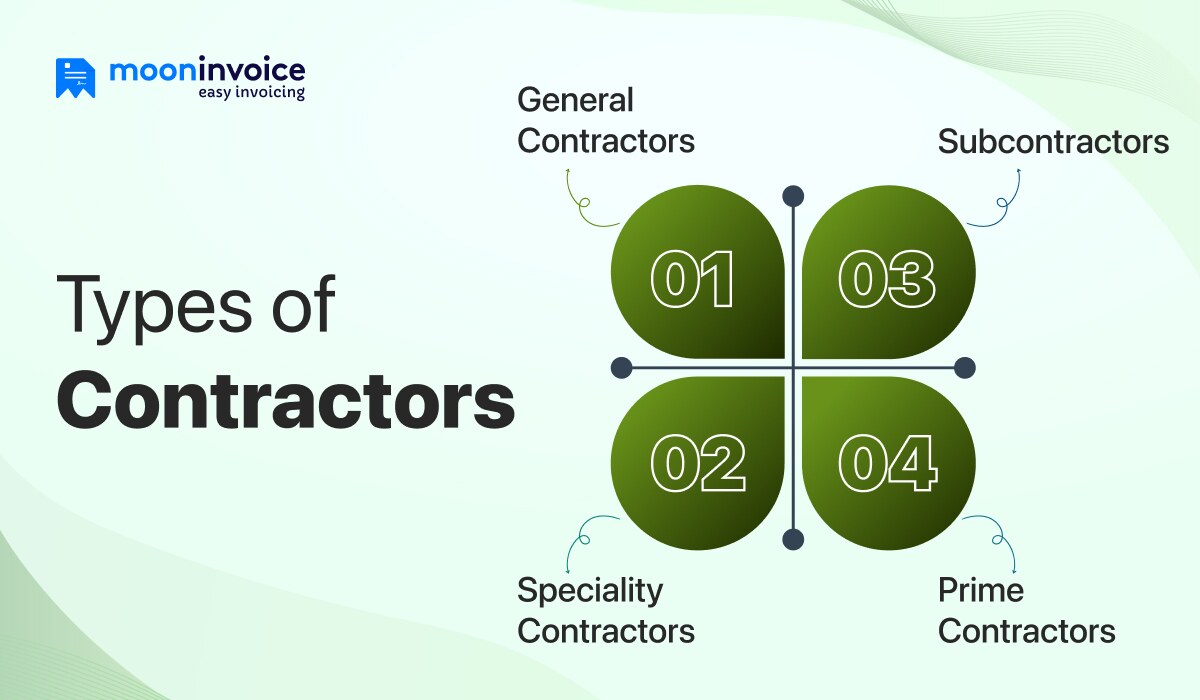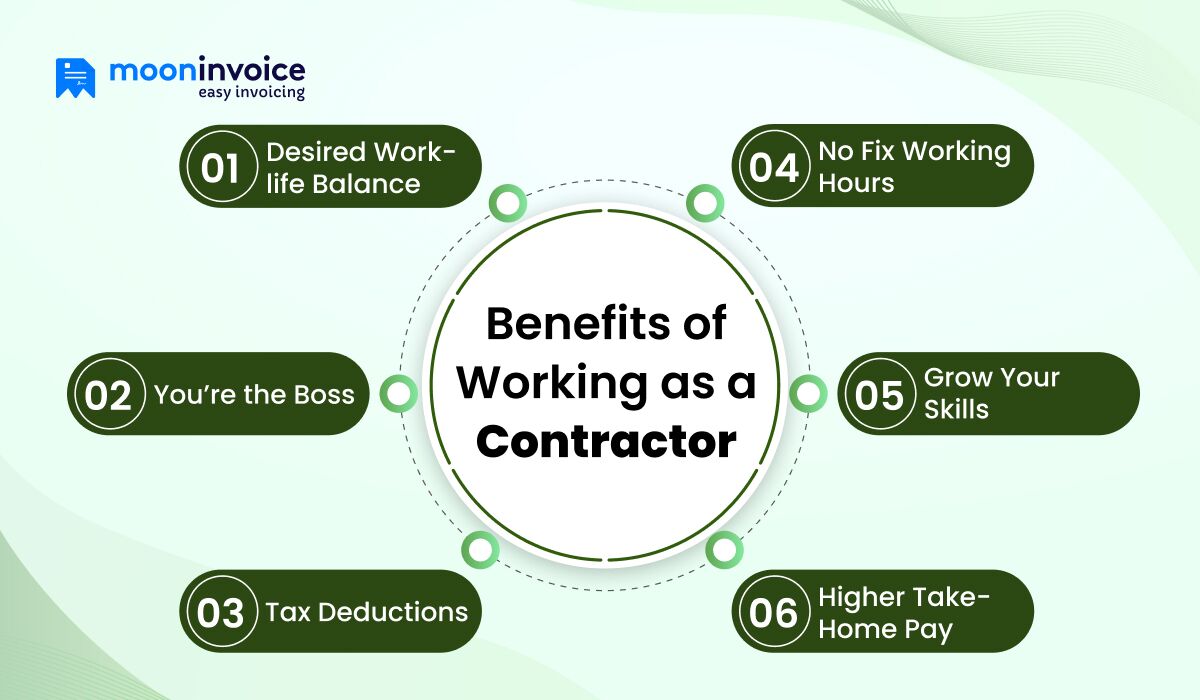Considering a switch from an employee to self-employed? Well, contracting should definitely be on your shortlist. Not only because you get money-making opportunities, but also to enjoy the work flexibility.
So, in case you have made up your mind to fill the contractor’s shoes, rest assured, it’s a lucrative opportunity. Wondering why? Because the number of full-time independent workers in the United States have increased in the past. Most of them have joined the construction industry, as the market is poised to be worth nearly $2.24 trillion by 2027.
The numbers say it all. There is a never-ending demand for construction contractors. If you are stepping up as contractors, let us guide you on what do contractors do and what are the general contractor’s responsibilities.
Alright, let’s begin with what is a general contractor.
Contractor Meaning Explained: What Does a Contractor Do?
A contractor is a person who manages the planning and execution of projects in a way that they fulfill the client’s requirements. They are professionals hired to work on tasks in which they have expertise. From assessing the job complexity to giving the final touch, contractors manage the entire project work.
Basically, a general contractor is a coordinator who bridges the gap between the hiring party and everyone associated with the project work, such as subcontractors, laborers, or vendors. For example, a construction contractor will look after the necessary materials or discuss the scope of the work with engineers while working on construction projects.
Here’s what general contractors do before and after the completion of work.
Before Work Starts
-
- Carefully check the client’s requirements and take steps to meet their expectations.
- Visit the job site and discuss with the engineers about challenges and project scope.
- Prepare an estimate manually or using a construction estimate template.
- Furnish permits and necessary licenses needed to get off the ground.
Post Work Completion
-
- Make sure there are no remaining minor fixes or adjustments.
- Check whether there are outstanding payments to be collected.
- Maintain cleanliness by removing leftover construction materials or debris.
- Nudge your client to add feedback that can be used for future projects.
Let us clear your doubts by taking an example to understand the general contractor definition.
Example of an Independent Contractor
Let us take the example of an independent landscaping contractor who offers lawn care services. The contractor is hired to look after the client’s outdoor spaces and also to build a custom garden in the backyard.
Now, the first thing they will do is assess the job site. Then, collect the materials and team up with the skilled laborers. They will try to get the job done without extending the timeline, and simultaneously, update the work progress to the client.
Once done, the contractor will bill the client as per the terms in the contract. Such is the ideal example of an independent contractor. Likewise, contractors from different industries follow the same process, concentrating on what they do best.
Invoice Your Clients Tirelessly
Adopt Moon Invoice to create professional and high-quality invoices with ready-to-go invoice templates & receive payments quickly.
Types of Contractors

Contractors are classified into four different types. Let us know what are different types of contractors in detail.
General Contractors
The professionals performing the entire project work from scratch are classified as general contractors. Their roles are not just limited to performing plumbing or electrical work. They look after all the important aspects of the project and finish the work within the predefined timeline. So, they are the point of contact for the client as well as those who are working on the project.
Speciality Contractors
As the name suggests, they are specialists in carrying out specific jobs. They can be specialists in roofing, flooring, or painting. And as per their skills, they will perform the assigned tasks and play a role in completing the project work. Their expertise in a specific field can offer valuable help in handling tasks that require careful attention to detail.
Subcontractors
Subcontractors are part of a large company managing billion dollar projects, usually hired by general contractors. So, their job is to perform the given task under the supervision of the contractor. Mostly, their role depends on the work that requires their expertise and skills. They do their job and report directly to the contractor, and play no role in the client’s meetings.
Prime Contractors
Prime contractors are akin to general contractors as they directly work with clients (mostly government or large businesses). They do whatever needs to be completed to complete the project, including planning, hiring subcontractors, or estimating. Consequently, they are accountable for the project’s success as well as the project’s failure.
General Contractor(GC)’s Licensing Requirements
Obtaining a license as a general contractor not only earns the client’s trust but also makes sure you and your team get paid on time. Here are the basic requirements to keep in mind while applying for a license.
1. Individual’s age
The contractor applying to acquire a fresh license must be at least 18 years old.
2. Experience
The license issuing authority will consider how many years of experience you have in the related field.
3. Insurance
Applicants must have general liability insurance or workers’ compensation insurance at the very least.
4. Background check
Reaffirm that you don’t hold any criminal record. Otherwise, your license application will be rejected.
5. State or Local Registration
General contractors are required to register with the local administrative board or state licensing board.
What Is a Contractor Job – Roles & Responsibilities
Here are some responsibilities involved in the general contractor’s job. From placing a project bid to project handover, the contractor’s job isn’t just a walk in the park.
1. Initiate Bidding Process
The general contractor will place a bid by preparing an estimate or a quote to win the project work. For example, a construction contractor will start generating an estimate using a professional estimate template from online software or manually. They will make sure an estimate is accurate and aligns with the prospect’s requirements. This way, general contractors will try to secure the new construction work by initiating the bidding process using contractor accounting software.
2. Project Planning
If the bid is successful and the prospect has now become your client, then engage yourself in project planning. Discuss the project scope by meeting the site engineers or construction manager and double down on how to fulfill the client’s requirements. Prioritize dividing the project into phases in such a way that you don’t miss the deadline.
3. Hire Subcontractors or Laborers
The contractor’s responsibility is also to hire the right subcontractors or laborers who can help in the project’s completion. For that, you need to identify what type of work really needs an expert’s attention. Based on the pending work, you can hire subcontractors for your team. Similarly, look for skilled laborers and team up with them.
4. Acquire Permits & Approvals
Since you are hired to complete the new project, you, as the general contractor is responsible for obtaining permits, licenses, or approvals that are mandatory. Apart from that, you also need to keep environmental guidelines in mind and take necessary safety measures. This process involves the proper documentation and submission of project plans & blueprints. Such a thing will ensure you have no setbacks in future project work.
5. Track & Report Project Status
Inspect the work carried out by your on-field team and guide them to complete it on time. You can assess the work progress and check out whether you need more resources to get it done. Simultaneously, report the same to your clients because they are the ones whom you need to satisfy. Likewise, take updates from the design team and report the work progress to the owner. This way, your responsibility is to keep the involved parties posted at regular intervals.
6. Final Inspection & Handover
If your team is done with the assigned work, commence the final inspection from your end. Visit the job site and thoroughly check if the work is completed as per the agreed-upon terms and conditions. Following the final inspection, you can finally hand over the project and proceed with invoicing & payment.
💡Recommended Read:
What are the Benefits of Working as a Contractor?

Stepping into the contractor’s shoes means you can avail of plenty of benefits that you may not find in other traditional jobs.
1. Desired Work-life Balance
A work-life balance is a highly sought-after perk, which you can get when working as a contractor. You neither need to travel unnecessarily nor participate in unwanted meetings, which further maintains a balance between your personal and work life.
2. You’re the Boss
Since you are at the helm of the project, it’s you who decides what needs to be done and what not. The authority to make important decisions at different stages of projects is in your hands. Thus, you can decide independently without consulting or asking anyone.
3. Tax Deductions
General contractors are exempt from different taxes. The perk which isn’t available to individuals working as full-time employees. Costs linked to business purposes, home office expenses, and travel costs are usually tax-deductible for contractors.
4. No Fix Working Hours
Working as a contractor means you are your own boss. You can set your working hours depending on the urgency of the projects. Hence, you can enjoy flexibility in a way that you can strike a balance between work and personal life.
5. Grow Your Skills
Contractors managing multiple projects have learning opportunities that can result in additional skills development. Plus, you understand the rising demands of modern buyers and the advancements in areas of your expertise.
6. Higher Take-Home Pay
Unlike traditional employment, there are no deductions from your paycheck if you are working as a contractor. This means you can maximize your payment as soon as you collect it from the client. Also, you don’t have to spend money to avail benefits just like full-time employees; you can keep it with you.
Get Moon Invoice to Tackle Invoicing & Payment Hassles
In conclusion, contractors wear multiple hats and handle planning, budgeting, and execution of the given projects. Their key responsibilities comprise the bidding process, hiring subcontractors, tracking project status, and final handover of the project. Upon the completion of the project, what’s really tiresome is paper-based invoicing & never-ending payment chase.
However, you can turn the tide by implementing the right construction invoice software that does it all. With Moon Invoice, you can prepare professional invoices, maintain accurate records, send automated reminders, and, importantly, get paid in less time. Grab a 7-day free trial.














